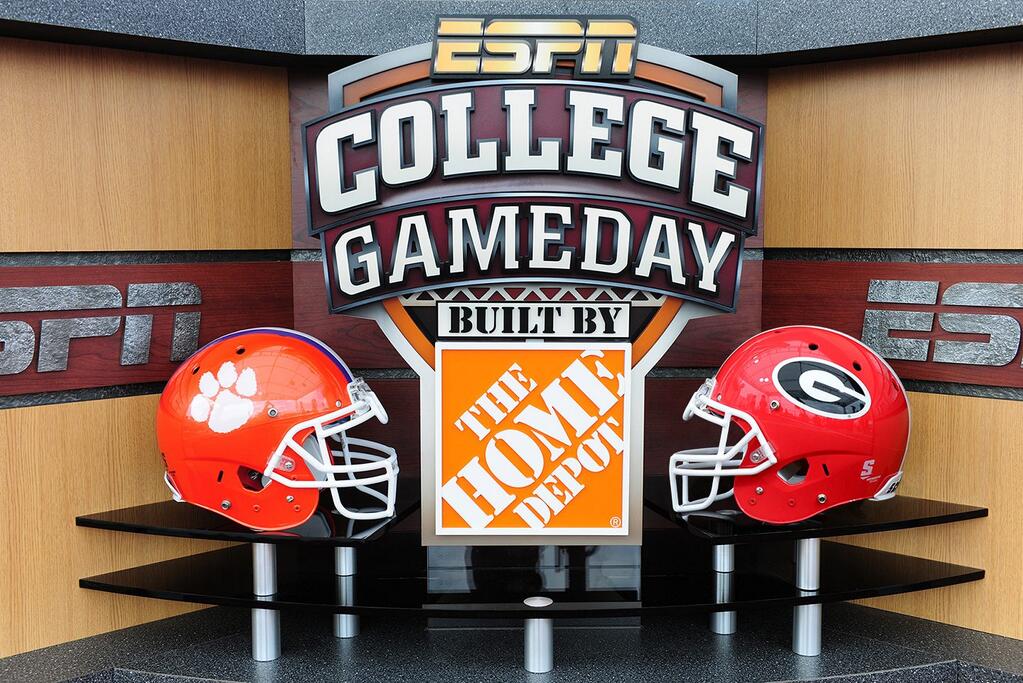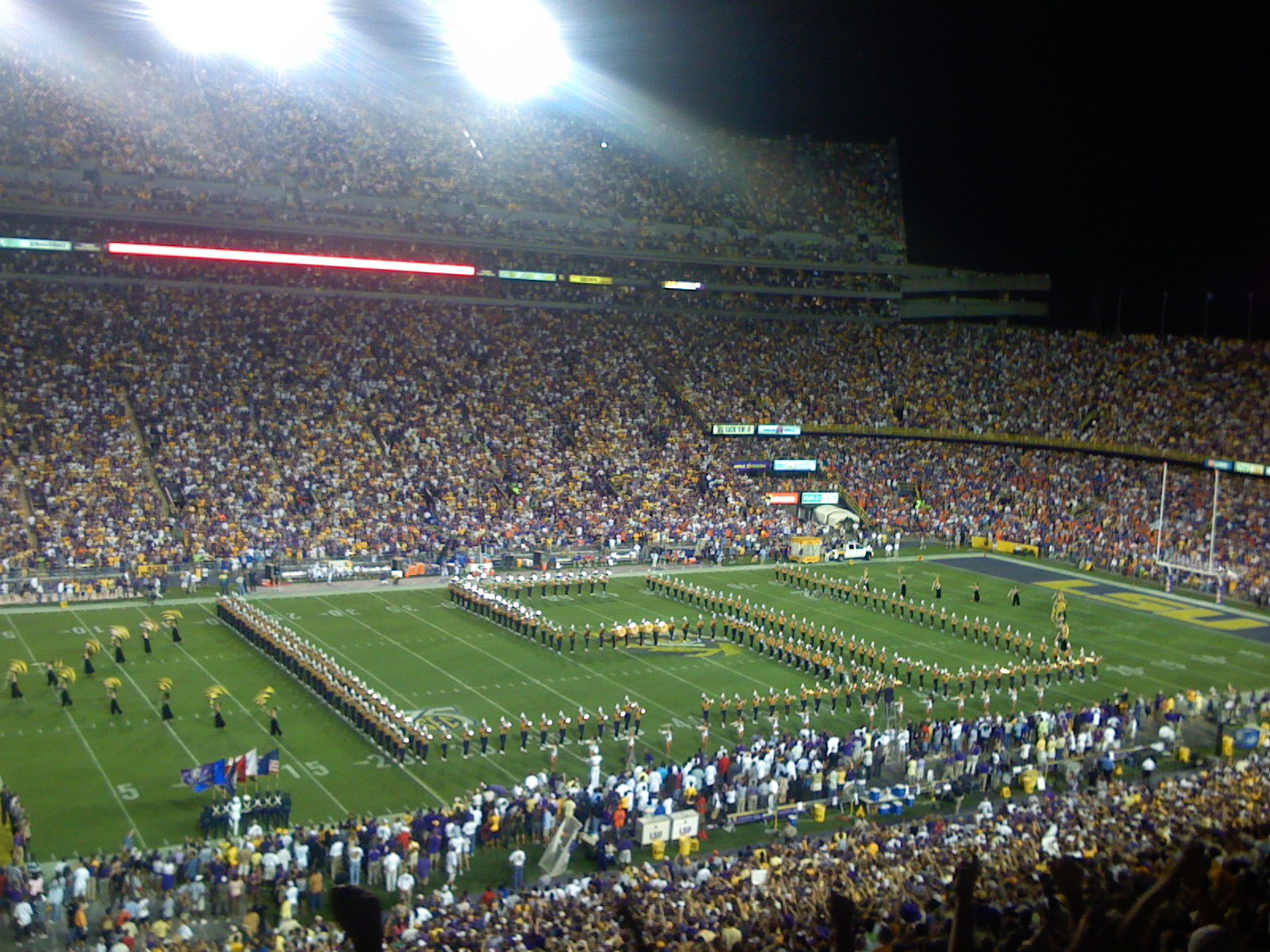ESPN Schedules College Football on '3D Chessboard'
The smarter way to stay on top of the multichannel video marketplace. Sign up below.
You are now subscribed
Your newsletter sign-up was successful

College football certainly has plenty to do with Xs and Os. When it comes to scheduling, though, ESPN also plays a game favored by Mr. Spock, Tony Stark and Sheldon Cooper.
With billions invested in long-term rights deals and games it has created, ESPN, and its myriad platforms, is the only player on the collegiate gridiron field that will cover home games from all 10 FBS conferences, BYU, as well as road contests from the three service academies over the course of the 2013 campaign.
“It’s a 3D chessboard of over 400 games each year,” said Burke Magnus, senior vice president of college sports programming, during ESPN Media Day at the company’s Bristol, Conn. headquarters on Aug. 21.

This year the schedule -- featuring coverage across ABC, ESPN, ESPN2, ESPNU, ESPNews, broadband service ESPN3, ad hoc highlights service ESPN Goal Line, the University of Texas' Longhorn Network and ESPN Radio -- kicks off on Aug. 29 at 6 p.m. with ESPN’s presentation of North Carolina-South Carolina. The Aug. 29-Sept. 2 schedule will showcase 12 of the top 15 ranked teams, including No. 1 Alabama-Va. Tech, No. 12 LSU-No. 20 TCU and No. 5 Georgia-No. 8 Clemson (ABC), before concluding with No. 11 Florida State-Pitt on Labor Day night. (Check out the full schedule below.)
All told, 46 games will be delivered over the various platforms, as the opening weekend continues ESPN’s blitz strategy. “A couple of years back, we really decided to plant a flag on Labor Day weekend with high-profile games on multiple platforms,” said Magnus in a recent interview.
Despite expanded contests and pregame offerings from Fox, Fox Sports 1, CBS , CBS Sports Network, NBC, NBC Sports Network, Big Ten Network and Pac-12 Networks, ESPN remains college football’s king and will present some 450 contests on its varied vehicles this year. None of that speaks to its airing of all but two of the bowls, including the final run of Bowl Championship Series contests, that follow the regular season.
This season, ESPN will add a third hour to on-site pregame stalwart, College GameDay, including four on Aug. 31 from Death Valley at Clemson. ESPNews, which like ESPNU is in almost in 75 million homes, is taking on a more prominent collegiate role. “ESPNews is a critical piece of puzzle,” said Ilan Ben-Hanan, vice president for programming and acquisitions for college football at ESPN, in a recent interview. “We’re looking to use it for national games wherever we can.”
The smarter way to stay on top of the multichannel video marketplace. Sign up below.
Via an expanded contract with the Mountain West, ESPN will air four consecutive Friday primetime conference games (Sept. 13, 20, 27, Oct. 4). “The Mountain West has some strong teams with Boise State, San Diego State, Fresno State, San Jose State and Utah State,” said Ben-Hanan.
For those so inclined, the worldwide leader televises college football for hours on end in the fall.
“With College GameDay and the addition of more Mountain West and Pac-12 games to round out the schedule, we’re on from Saturday morning to 1:30 – 2 a.m. on Sundays,” said Ben-Hanan.
Showcasing more match-ups than all other competitors combined, ABC, ESPN, ESPN2 in 2012 combined to reach more than 187 million viewers, with those services and ESPNU, averaging nearly 2.02 million watchers for 216 regular-season games. ABC’s Saturday night primetime telecasts, which Magnus called the “A+ games, the highest-rated series in college football,” set the pace, averaging 6.52 million viewers.

“We have not experienced [audience] softness over last five or six years,” said Magnus in a recent interview. “The more games should put downward pressure on overall ratings. College football is defying gravity.”
Magnus on Media Day noted it’s “our job to maximize ratings and revenue opportunities for all the networks. We have to manage them. It doesn’t do us any good, if one service is up 30% and another is down 50%.
To that end, many criteria are assessed in determining which networks get which games in which timeslots.
“There are a lot of data points about how brands and teams resonate, what drives audiences between the rankings and fan avidity,” said Magnus.
Ken Dargis, director of programming and acquisitions for college football at ESPN, on Media Day said the company has “to manage a slew of contracts. None of them are the same; each is nuanced. For some teams, the start times don’t matter. For others, we have discussions right before the season starts about the maximum and minimum number of [school] appearances.”
Magnus said ESPN has to juggle the restrictions of its rights agreements: early and late start times and how many weekday games and how many Saturdays are in play for the various teams.
“We have to stay within the guard rails of our obligations to the conferences,” he said. “You might see some head-scratchers on the schedule from time to time. But it may be a matter that we have run out of the ability to put a team on early or late. It’s a 3D chessboard, a puzzle that takes a long time to construct.”
Helping to build that master list is the Pigskin Access Scheduling System, which Dorgis provided reporters a quick peek of during Media Day. Dargis said ESPN created the secure website about a decade ago, and it has been fine-tuned over the years.
“Each conference had a different format, a different way of keeping track of games. In the past, we had to do a lot of unnecessary work,” he said. “For the most part, the conferences have bought in to this as a clearing house to build future a non-conference schedule. We use it a lot.”
Dargis pointed to FSU-Pitt as an example. “We had to make a lot of moves going down to the Division 2 level to make it happen,” he said. “It would have taken a lot longer to schedule without it.”
Magnus was stoked about the Nielsen prospects for the upcoming match-up. “Traditionally, Labor Day is the highest-rated window [for ESPN] for the entire season. On Monday night, it’s the only game in town,” said Magnus. “In this case, it’s Pitt’s first game in the ACC against the perennial king of the conference. Pitt-FSU is about as good as we can get for a Monday. It’s difficult for teams to turn around and play on Saturday.”
Looking ahead to the 2014, Magnus said the kickoff of the SEC Network, which will air 45 football games, including Texas A&M-South Carolina as the service’s gridiron opener on Aug. 28, 2014, won’t add a fourth dimension to the scheduling chessboard.

Magnus said that after CBS takes the first pick of conference games, contest selections then will be in play for ESPN, ESPN2, ESPNU and the SEC Network. “It’s a question of which game, goes where. In many ways, it adds flexibility to satisfy team’s start-time desires,” explained Magnus. “It’s no secret that LSU likes to play its games at night. It would rather play on the SEC Network at night, than at noon in syndication.
“We’re going to move a quality game to SEC Network from syndication. But it’s quality all around. It’s a deep conference, now with 14 teams up from 12. I don’t think it’s going to have a huge impact [on our overall scheduling].”
Opening College Football Weekend Schedule on ESPN, ABC, ESPN2, ESPNU, ESPN3, ESPNews, Longhorn Network and ESPN Radio Schedule
